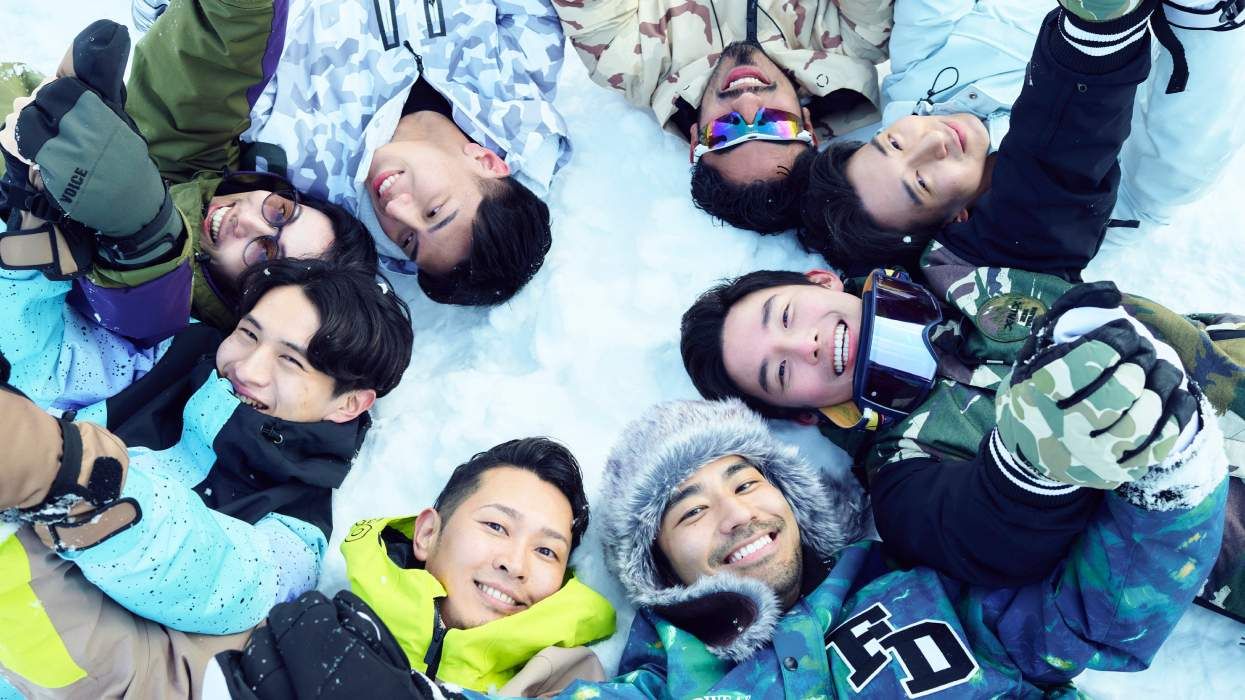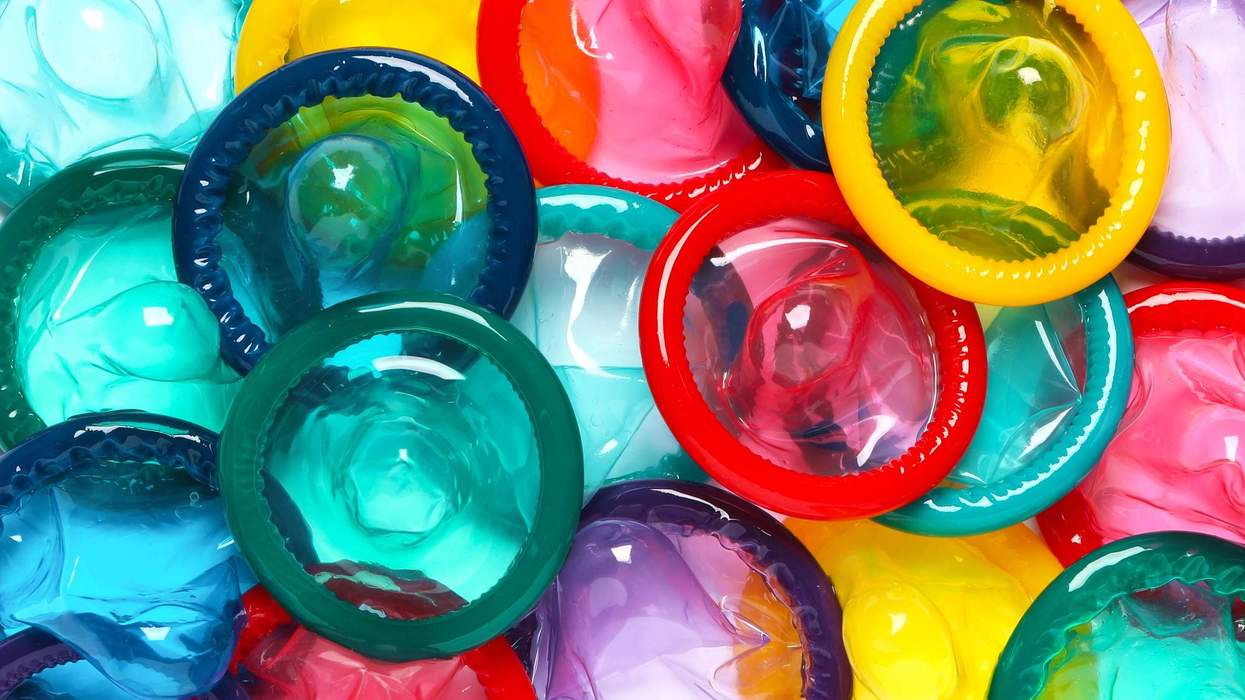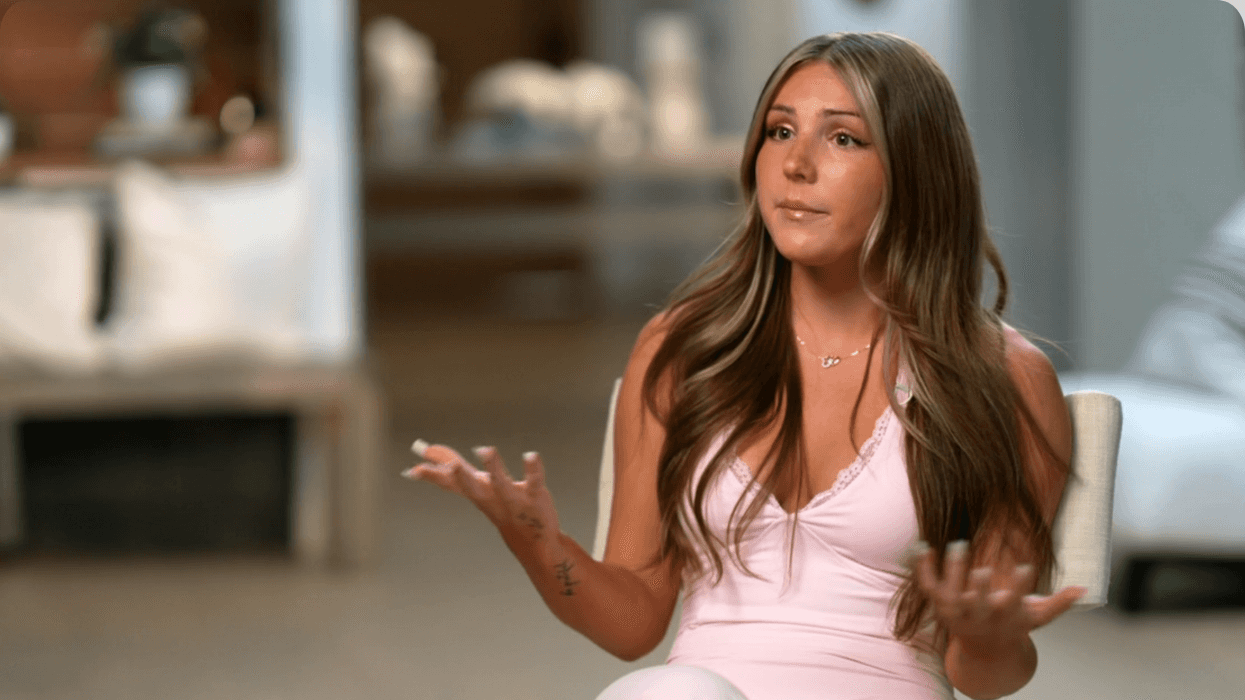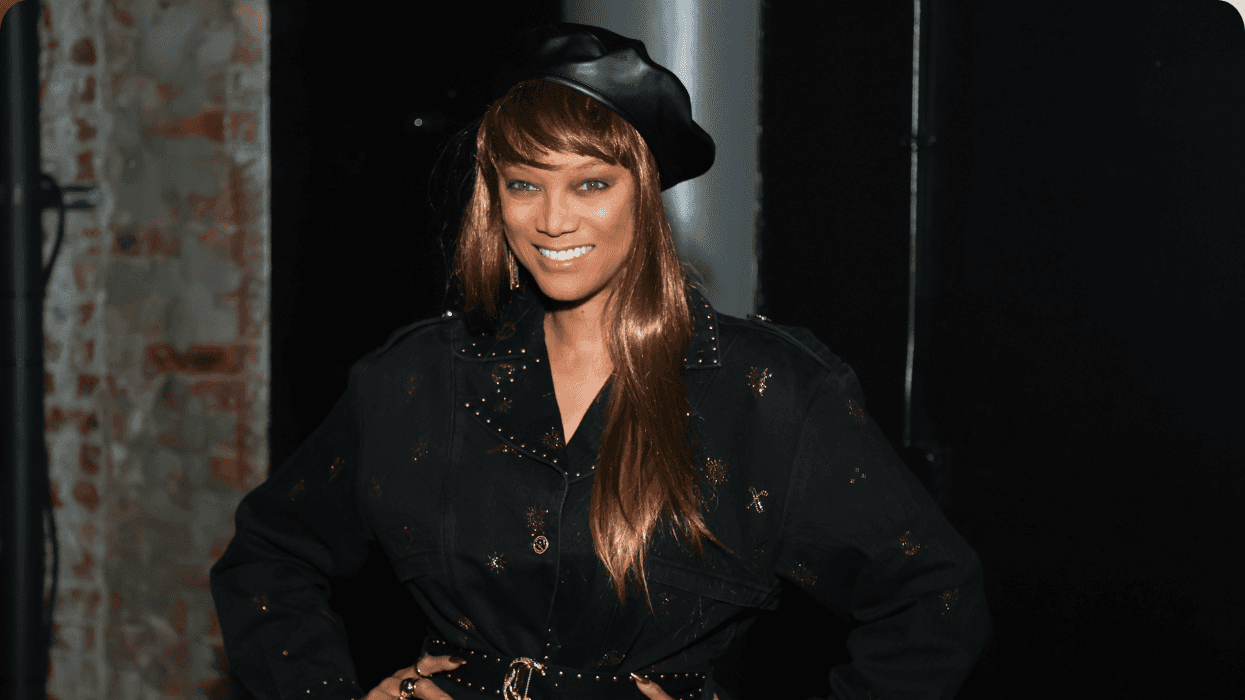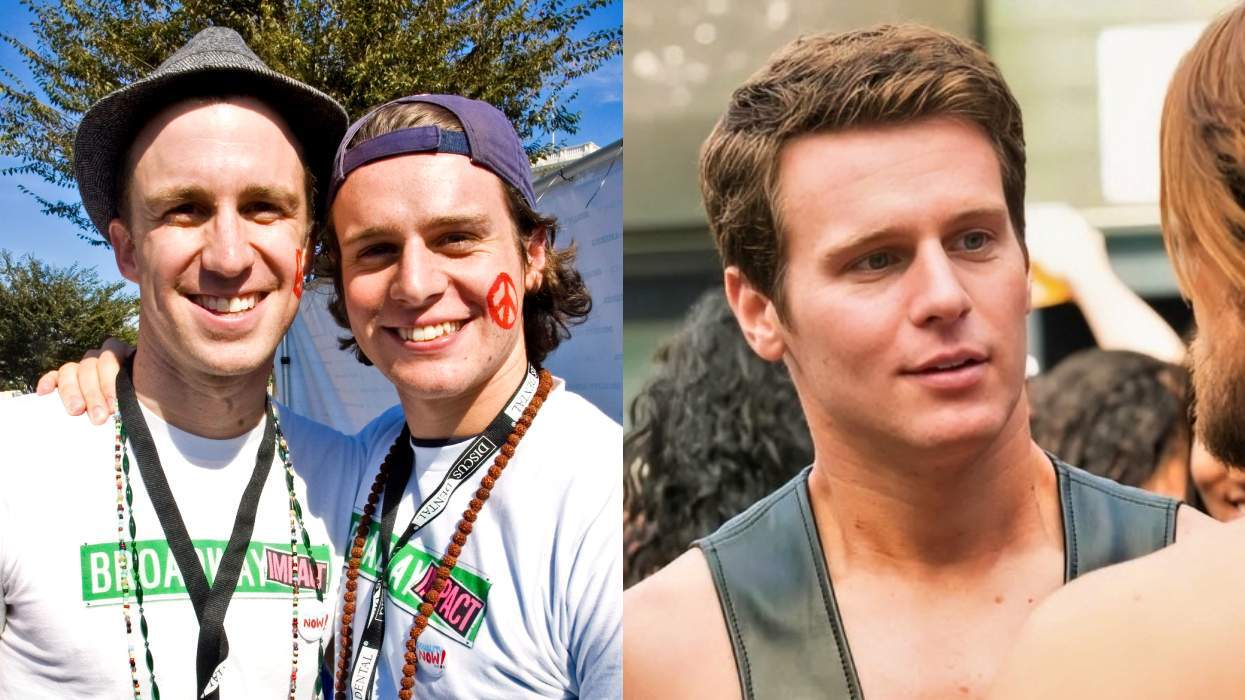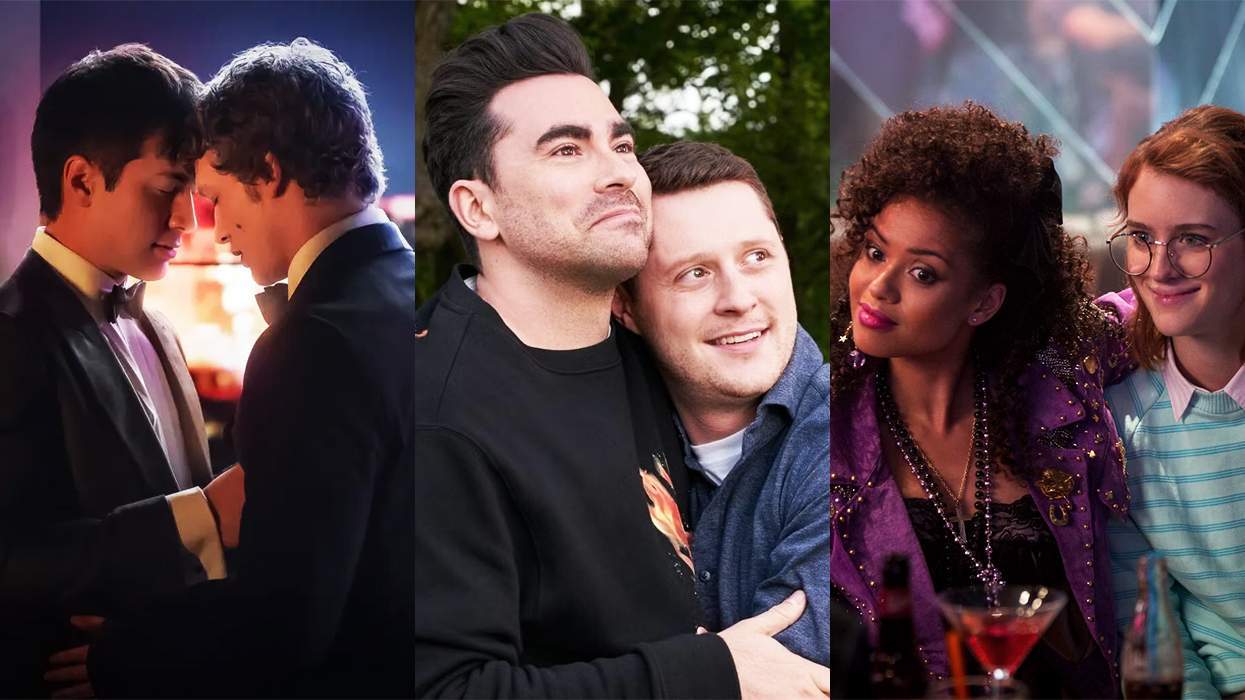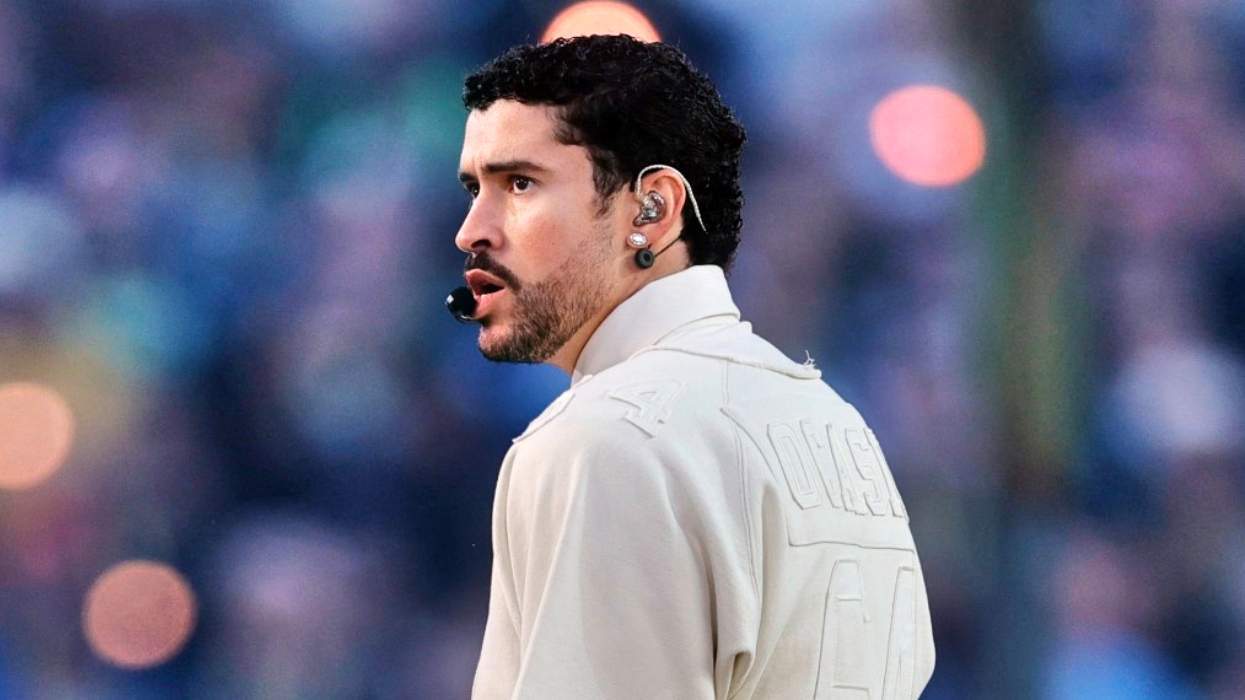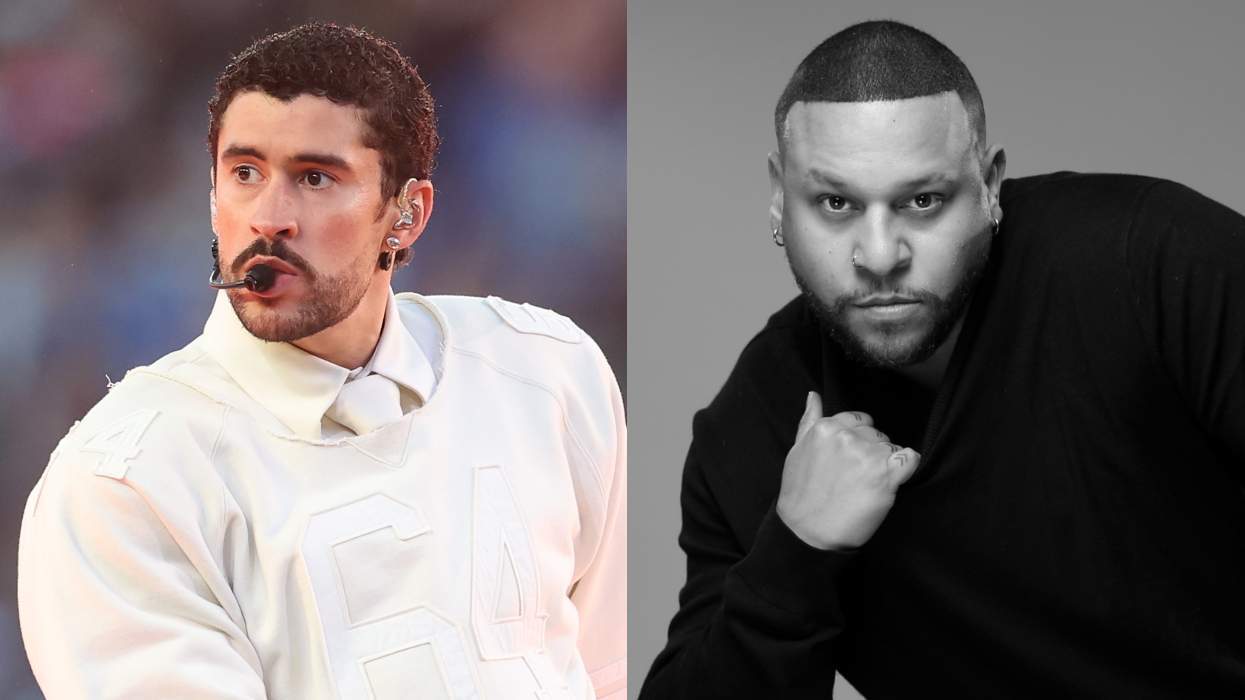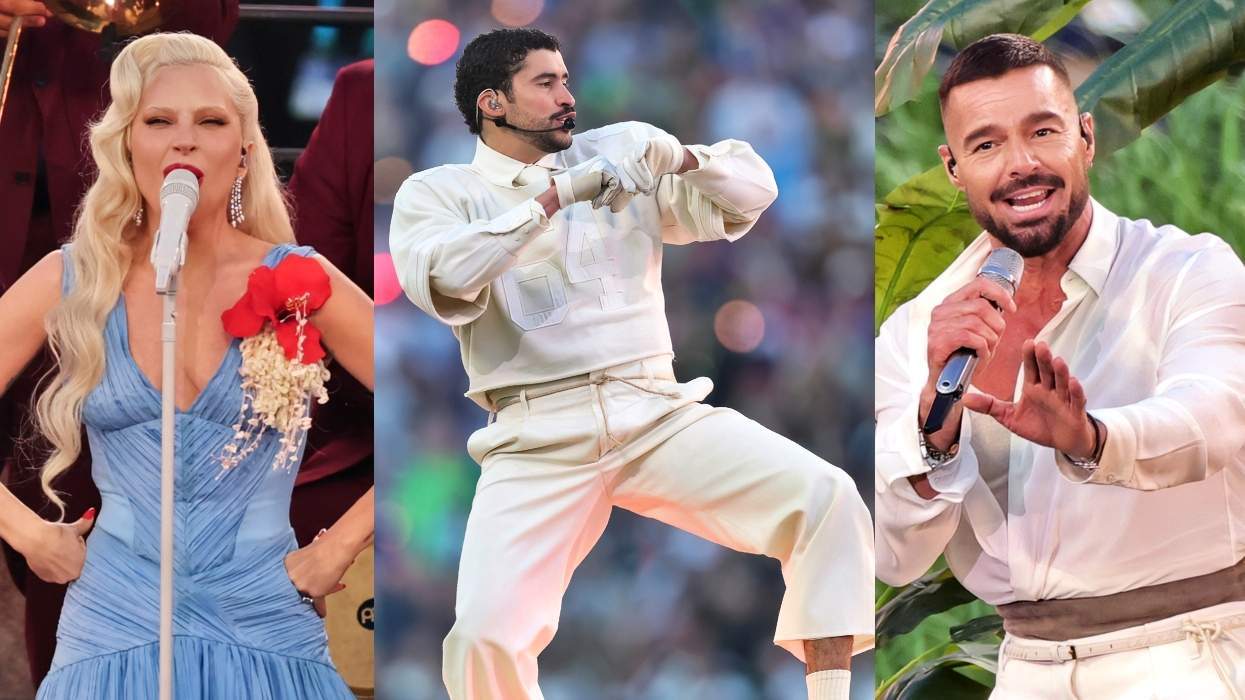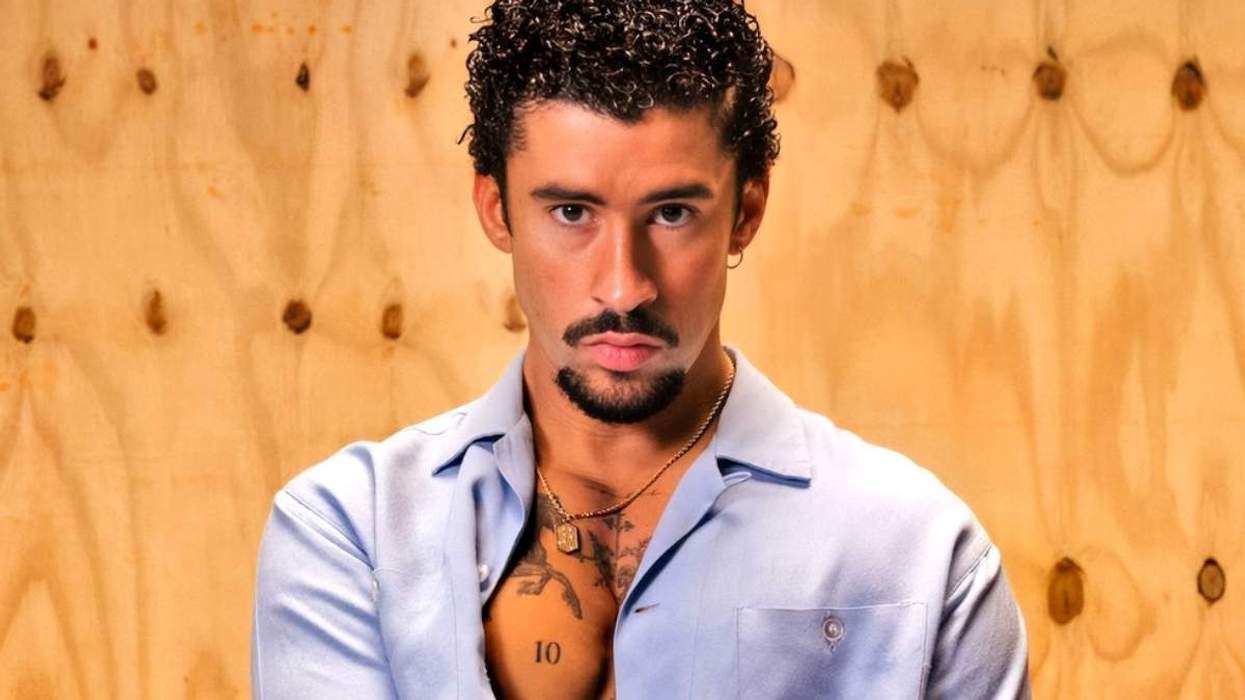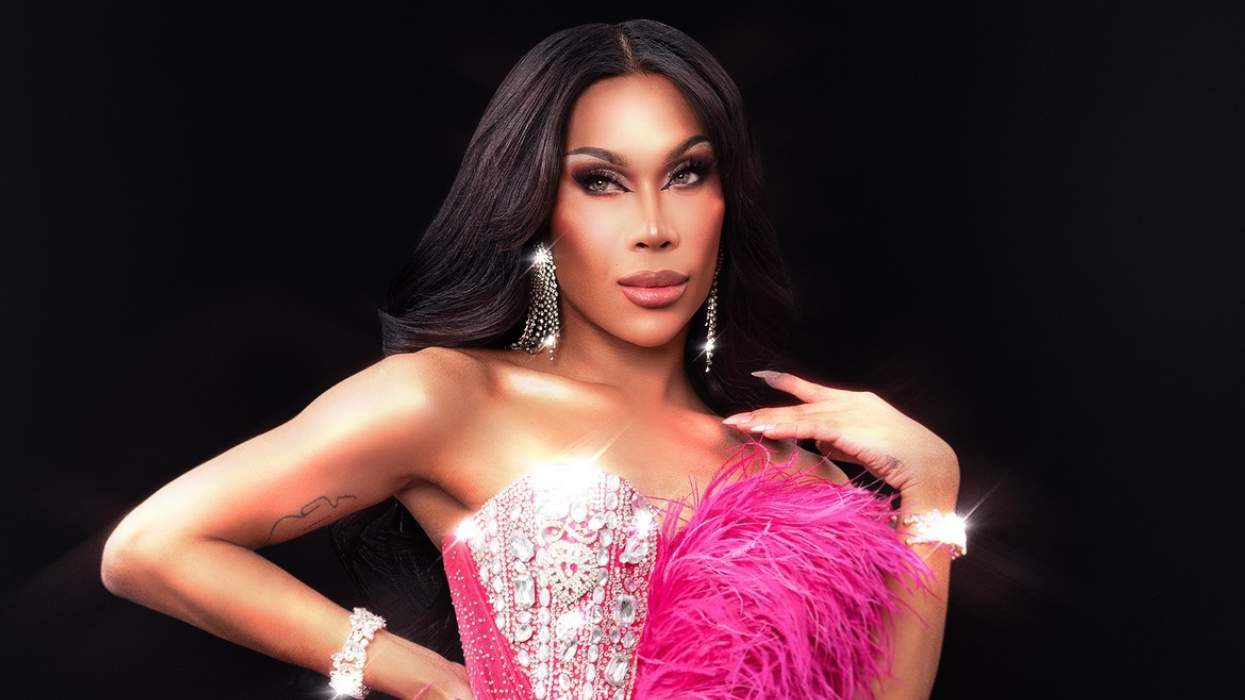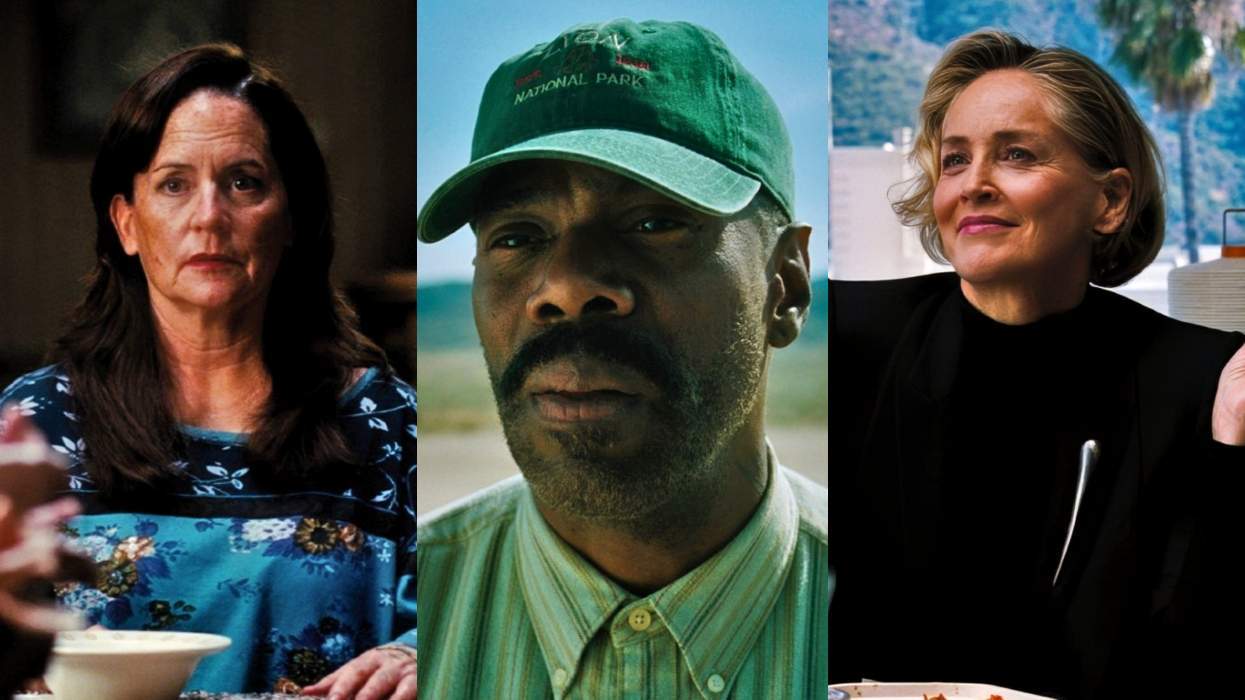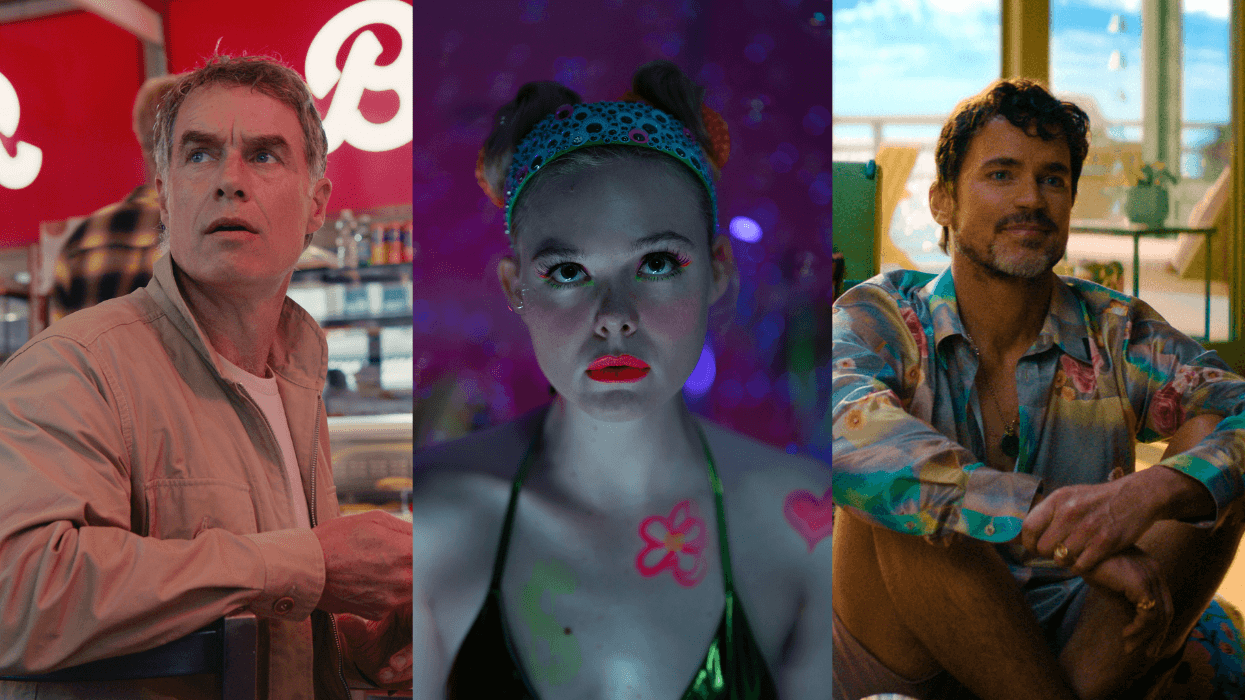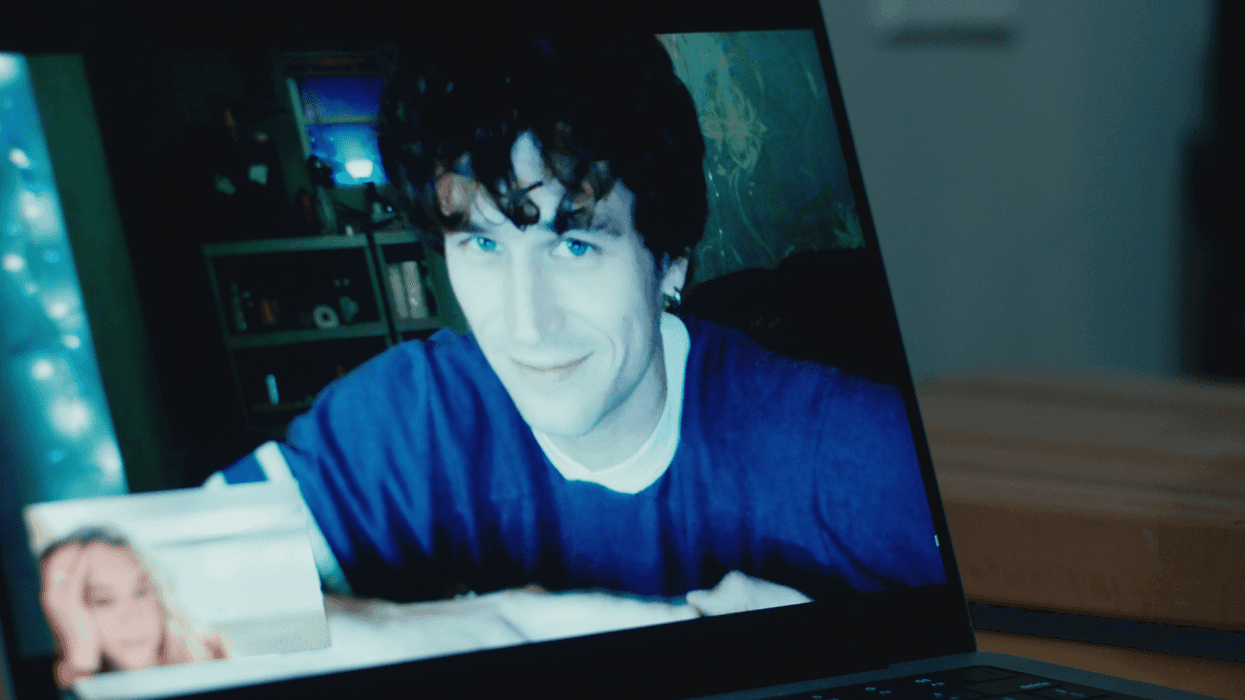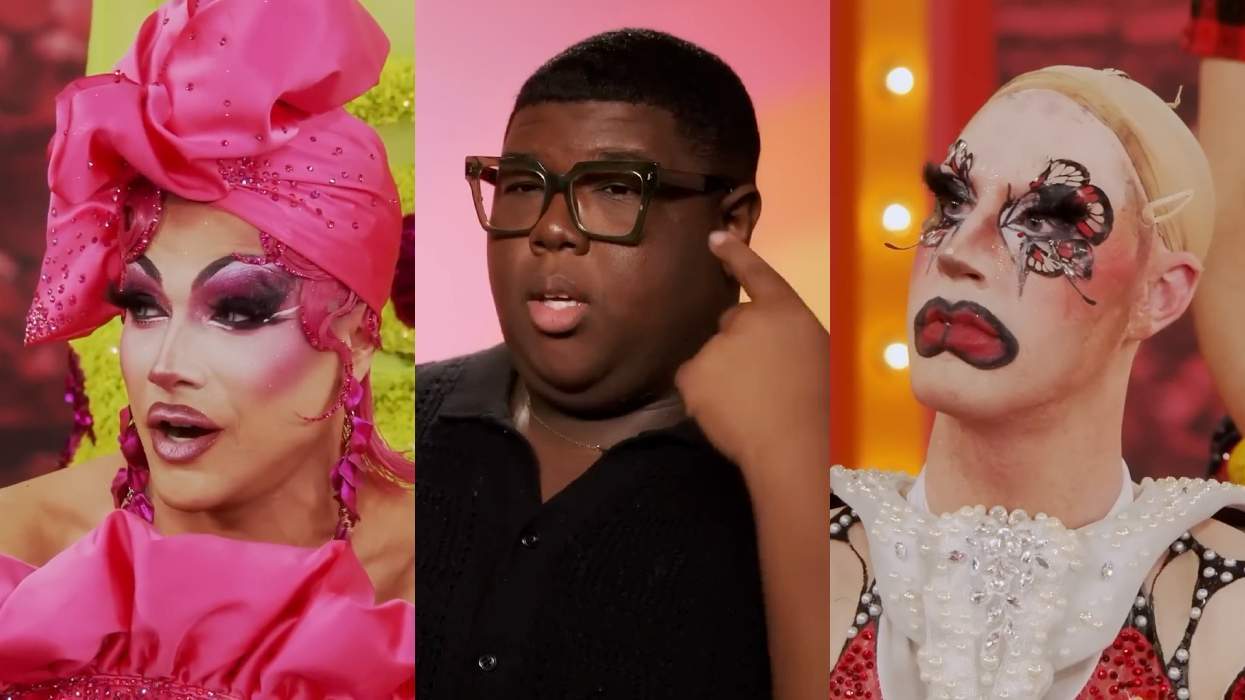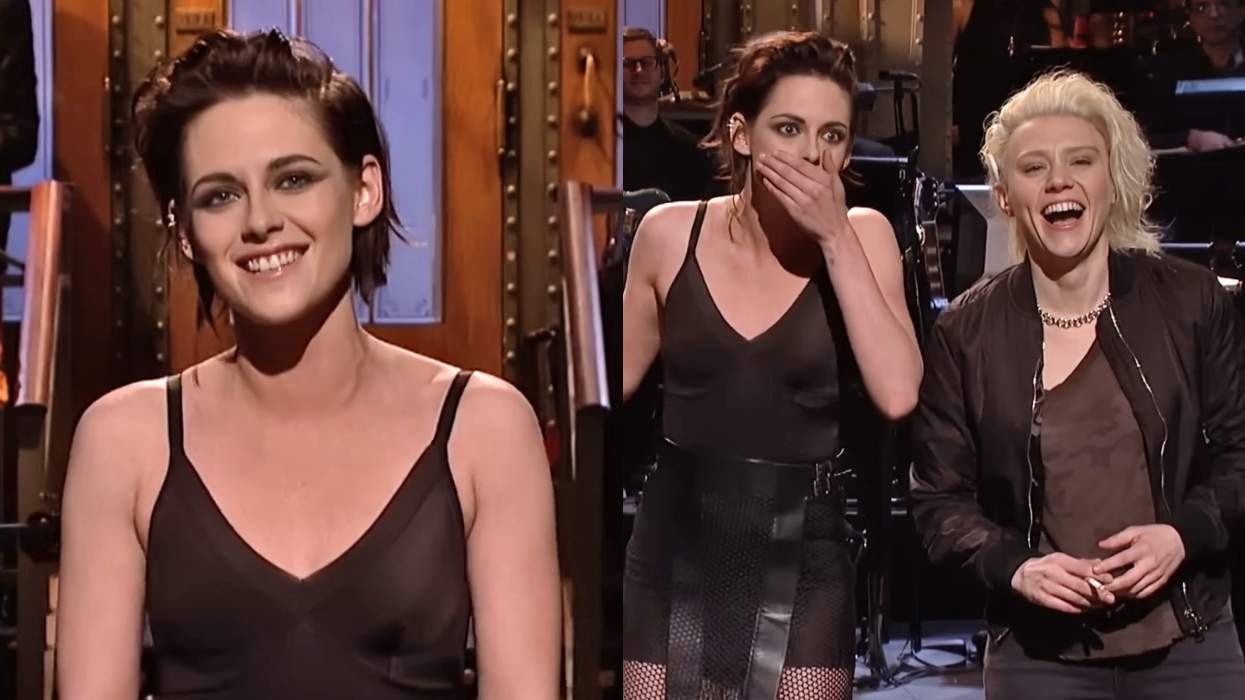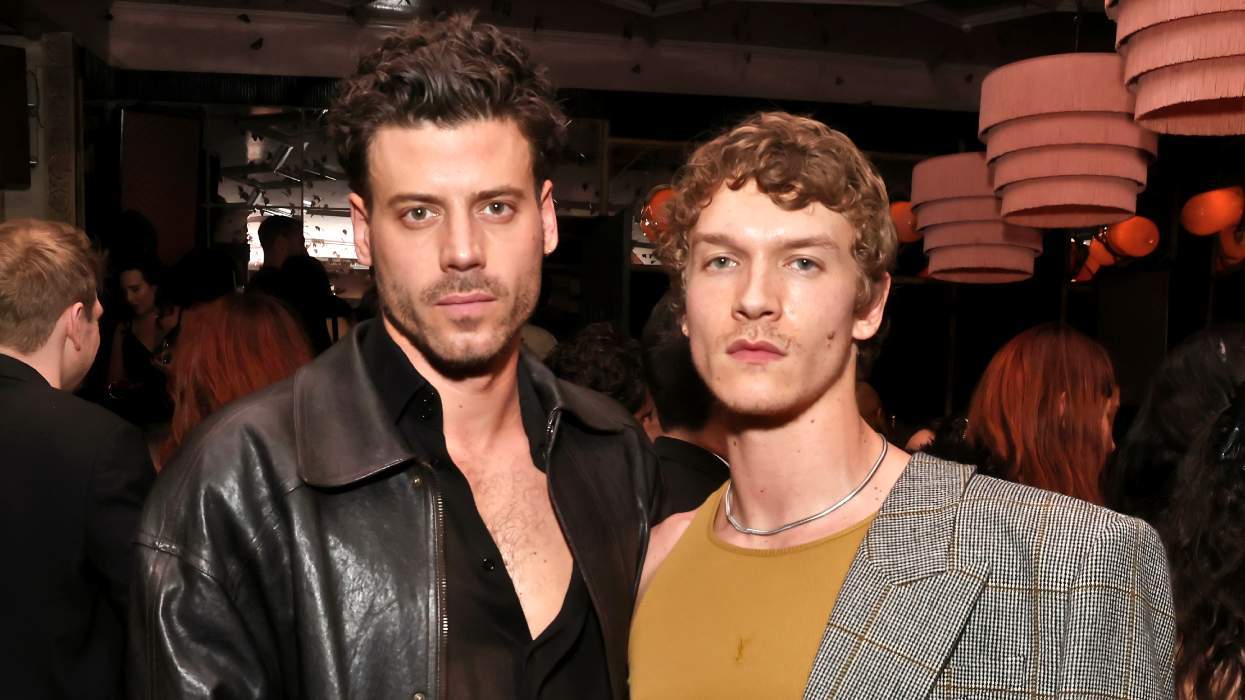Reality TV got a little too real for former Olympic freestyle skier Gus Kenworthy on last night's episode of FOX's Special Forces: World’s Toughest Test.
Taglined "16 celebrities. No mercy. Celebrity recruits must survive real military training", Kenworthy joined Danny Amendola, Mel B, Hannah Brown, Tyler Florence, Kate Gosselin, Dwight Howard, Montell Jordan, Nastia Liukin, Carli Lloyd, Beverley Mitchell, Kenya Moore, Mike Piazza, Dr. Drew Pinsky, Anthony Scaramucci, and Jamie Lynn Spears as the stars attempted death-defying obstacles, unbearable heat, hunger, tear gas, and even being set on fire.
Unfortunately, Kenworthy was forced to tap out on last night's eighth episode of the series, entitled "Courage," when he suffered an allergic reaction that sent him into anaphylactic shock. It's a terrifying moment for viewers at home and in an exclusive interview with Out, the 31-year-old shares just how it felt in person as well as details his experiences on the show, what exactly was going through his mind while his throat was closing up, the real reason he had to exit Special Forces, the downfalls of TV editing, and more.
Out: You are really putting your body and mind through the wringer on this show. Why did you want to compete?
Gus Kenworthy: I don't even have a really good answer for that. The opportunity was presented. They asked me if I wanted to be a part of it and I didn't even know what I was signing up for. I was just wrapped up with the Olympics and I had retired from my ski career and I didn't really know what the next move was.
I want to pursue an acting career, that's the focus. That's obviously the least guaranteed type of job. This came up and I don't know, it sounded fun and they told me a few of the names of people that were doing it. They kept some of them secret but I was like okay cool, it's big names and people that I respect and I thought it would be fun.
It wasn't really fun.
You might have to jump out of a helicopter, you might have to do this, you might have to do that and I was like okay cool, that sounds fun. I like doing things like that and I actually will say for the most part the experience, the challenge aspects of it, I did enjoy. I do like doing that kind of stuff. But pushing a car across the desert and sand and having it be so heavy and it's not moving, it's just exhausting, like that wasn't fun.
Sleeping in a hot tent and not getting very much food and being called on at any hour of the day, not getting to rest ever, was pretty exhausting and not fun, but some of it was fun.
In last night's episode, viewers watched you go into anaphylactic shock. What was going through your mind at that moment?
We don't fully know what it was from, although we suspect it was from... there was this tank of water that everyone had to jump in on day one and had to jump into multiple times throughout the experience.
It was this like big tub of water basically and it was sitting in like 120-degree heat all day long and then it was cold at night and each and every person jumped into it, It was just like this dirty, gross water. I think bacteria started growing in it or on the surface or whatever and when I jumped in on the day that I went to anaphylaxis, I think I ingested some of it accidentally.
It was a weird thing, it started as just sort of a cough. I felt like I had something caught in my throat almost. I was coughing and coughing and trying to like get it up. I think that it was actually my throat closing. I didn't really realize. It was just this really constricted feeling where my throat was basically closed up. It felt like something was there. It was getting harder and harder to breathe.
I started to panic at the beginning like, 'It's okay, it'll pass, whatever.' And then I was like, 'Oh it's getting worse.' When they brought me into the medical room, I was really, really starting to be out of it. I couldn't catch my breath. The doctor, Jamie, was amazing and recognized it as anaphylaxis pretty quickly and immediately gave me a huge dose of epinephrine and he was right, it was an allergic reaction. Otherwise, the epinephrine wouldn't have fixed it and it was within a minute, I was back to breathing again.
I threw up a lot. I threw up everything that was in my stomach basically. But then I was breathing again.
I actually wanted to go back into the show and they wouldn't let me.
After all of that, you wanted to return?
They called the ambulance and I was still there and I was speaking again and I was cohesive and fine. I actually feel fine now, which I was I was like shocked by. It was an allergic reaction, the epinephrine did the job. It usually acts in 30 seconds. Within three minutes, you're completely back to normal.
Basically, they said that the risk is that you can go back into a repeat anaphylaxis within 24 hours. They just didn't give me a choice. I wasn't allowed to go back in, I went to the hospital and had to spend the night for observation for 24 hours and then I flew home.
It was a bummer to end the show that way.
What did you learn about yourself from your time on the show?
My whole career has been so goal-oriented, specifically focused on winning. With skiing, it's always been about winning.
In my acting career, I have a hard time... like if I get a call back on something and then end up getting a note from casting that's like, 'Hey we really like you did a great job, but we're going in a different direction.' I take that as like a loss. My manager was like, 'No that's a win, you did a great job, they want a different direction, that's great.' I just have a hard time with that because I'm so focused on winning and winning is what's always been so important to me.
This show, I think helped with that because it really wasn't about winning. You could fail every single challenge, but if you're trying and you're following their instruction and you're keeping up, they're not pulling you from the course. It was just about pushing yourself. They said early on that everyone will leave the course when they're supposed to. I believe that to be true. I feel like I needed to learn that lesson, I needed to not win the show, I needed to leave early. It was fine that I left one challenge before the end. In the moment I was so frustrated, but then in hindsight I was like, oh actually that's probably how it was supposed to be.
I also just learned that reality TV is reality TV. When you're with all these people all day long and there are all these conversations that's not gonna make it into the episode. At the end of the day, things are gonna get chopped up and come together in the way that's best for television.
You have to like take that with a grain of salt.
Now you know how the Drag Race girls feel.
[laughs] For sure.
Would you do the experience again?
Honestly, I think I would. That part of me that's like, 'I left when I was supposed to' is there, but there's also the part of me that wants to win and wants to finish the course. If there was an opportunity to do it again, I probably would. It wasn't fun, a lot of it. It was uncomfortable and frustrating and difficult, but I also think it's important to put yourself in those situations. Even just being uncomfortable for two weeks I think is something that provides a lot of personal growth and time for reflection. Being off your phone for two weeks, not having your phone or any electronics with you is something that ultimately is probably beneficial, so I would probably do it again.
Do you hope viewers at home take anything from your run?
If I'm speaking completely candidly, I'm not thrilled with the way that I am portrayed. I feel like in life, I'm really kind and funny and I'm like sassy and quirky and quick-witted and this is not that show. This is like a military show. Your entire role there is to be a complete subordinate and take instruction and do it and not talk back and not show your personality. That was kind of hard for me.
Then the moments where it came through, like when I did the flip out of frustration into the water and got yelled at, I don't think it like necessarily showed who I am or how I am. Things get cut up and sewn together in a way that is sometimes frustrating. In one of the challenges, we had to walk across these pipes and the DS was like, 'Are you gonna make it across there?' And I was like, 'I guess we'll see. I hope so.' And he was like, 'That's not the attitude. I want to have confidence, I want to hear you have confidence.' And I was like, 'Okay, I'm gonna get across, I'm not gonna fall.'
In the episode, all they show is me saying I'm gonna get across, I'm not gonna fall, and then it kind of like actually makes me look cocky. Which is like, fine. It's TV, who cares? Maybe people are loving me. I have no idea. But I don't think that people are watching and getting a true sense of who I am. But I don't know, that's neither here nor there.
I still had a good experience. I think that the show is, for the most part, pretty honest. I don't think it was the type of show that gets to reflect your personality a whole lot.
As RuPaul says, blame it on the edit.
[laughs]
The latest episode of Special Forces: World's Toughest Test is now available to stream on Hulu.




